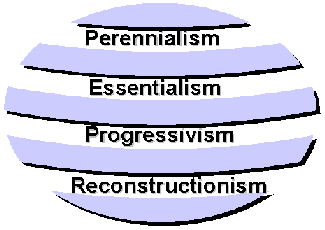 It is important for every teacher to have a personal philosophy of teacher education based on a set of values and principles. Fair equality of opportunity entailed that the distribution of education would not put the children of those who currently occupied coveted social positions at any competitive advantage over other, equally talented and motivated children seeking the qualifications for those positions (Rawls 1971: 72-75).
It is important for every teacher to have a personal philosophy of teacher education based on a set of values and principles. Fair equality of opportunity entailed that the distribution of education would not put the children of those who currently occupied coveted social positions at any competitive advantage over other, equally talented and motivated children seeking the qualifications for those positions (Rawls 1971: 72-75).
Over time, as they moved up the educational ladder it would become obvious that some had reached the limit imposed upon them by nature, and they would be directed off into appropriate social roles in which they would find fulfillment, for their abilities would match the demands of these roles.
These changes could be traced historically from the time of the primitive societies, countries and empires when Individual physical strength has been losing importance to individual organizational ones when skills and knowledge has been gaining importance: thus the values of what was important one time was not very much that important another time.
And they coexist as impulses within broad philosophical movements, and even within the thought of individual philosophers themselves, sometimes conflicting in a way that might help explain the tendency toward reflexive self-examination and uncertainty that so exercises philosophy of education as a field.
While the most obvious examples include the areas of teaching, educational management and policy, disability and professions that involve care and service, the programme seeks to produce graduates who would be able to apply transfer their knowledge, skills, and understanding to a wide variety of sectors, including business, charity work, and arts & culture.
